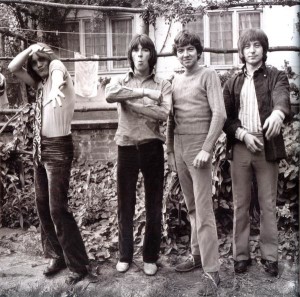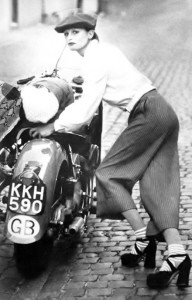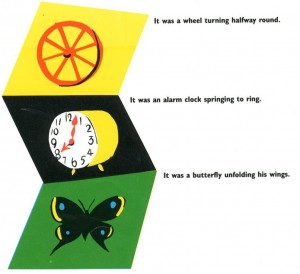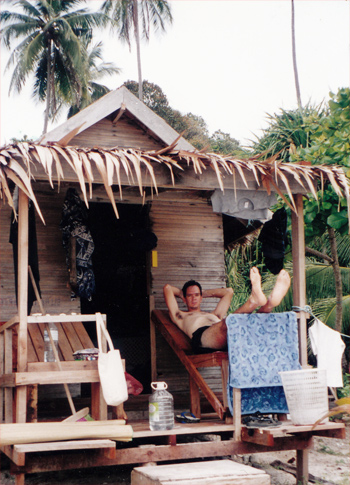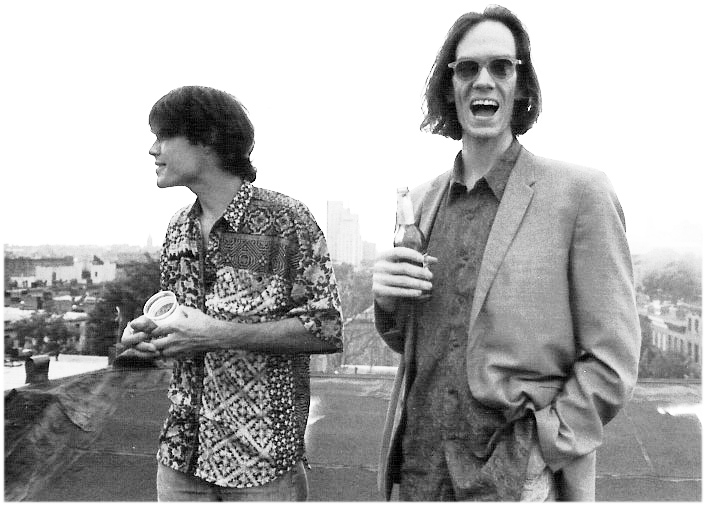Ah, yes, son, the winter of ’15. Like everyone else in the eastern United States, we’ve been hammered by winter weather for three weeks. First, the blizzard, then the bitter cold, then a brief respite, and then the exact same thing happened 10 days later. Jesus.
I like to think we’ve seen the last of it. This forecast says mild and messy for the next couple of weeks. The white is melting. Outside the window I can hear the otherworldly murmur of a flock of sandhill cranes. The receding snow shows the mums poking out and ready to go.
 As my dozen discerning regular readers know, my family’s Snopocalypse ’15 experience differed from the norm in that we’ve been hunkered down with an animal not usually housed in the living spaces of humans. We let the news trickle out via Facebook status updates and Instagram posts, and friends from our old lives in New York whispered with concern and anxiety the question: “do you really have a cow in your house?” A couple of my more literary chums mentioned Flann O’Brien’s great parodic novela An Béal Bocht, in which a wretchedly poor Irish family keeps the pig inside their humble home….
As my dozen discerning regular readers know, my family’s Snopocalypse ’15 experience differed from the norm in that we’ve been hunkered down with an animal not usually housed in the living spaces of humans. We let the news trickle out via Facebook status updates and Instagram posts, and friends from our old lives in New York whispered with concern and anxiety the question: “do you really have a cow in your house?” A couple of my more literary chums mentioned Flann O’Brien’s great parodic novela An Béal Bocht, in which a wretchedly poor Irish family keeps the pig inside their humble home….
Well, it’s not like that, he says, not at all defensively, except that it is. The situation is–however and thank God–almost at an end. I’ve already written about how this calf came inside, if you need to be brought up to speed. There were many times in the first two weeks we resigned ourselves to the idea our calf was not going to make it. But, irony of ironies, it was Heather’s extraordinary efforts that finally got the calf to begin sucking milk from a bottle. Now she is on the feeding schedule of a normal bottle calf. A half gallon twice a day, the bottle sucked dry in two minutes. You can no longer count the calf’s ribs just by looking at her. She is ready to go outside, if still not quite to the point where she can go back with the herd.
During the dark days since February 16, when the first blizzard blew in, my mind has been pulled in a dozen different directions, aside from the expected noise of kids fighting, and the kids’ Kindles not working with the Wifi, and the thumping of two boys addicted to bouncing basketballs and practicing dunks on mini hoops.
In the kitchen I’ve been experimenting with pork braised in milk, a new thing (to me). A recipe in Marcella Hazan’s The Classic Italian Cookbook matched almost exactly one from Simone Ortega’s 1080 Recipes. “Whenever I teach this dish, writes Hazan, “I am greeted by more or less polite skepticism, which usually turns to enthusiasm at first taste.” That was my experience, exactly, dear Marcella. Later I noticed a Mark Bittman variation using coconut milk and, well, I’ve got the theme for suppers until spring.
I watched basketball games, lots of them. Kentucky is exhausting sportswriters’ supplies of superlatives, and both Fighting Irish squads well positioned for the postseason, the ambitions of the men’s team of course more modest that those of the women’s.
For some reason the Breeders’ Last Splash has emerged in my mind as a masterpiece, and “Saints” has become my unofficial anthem. In the video (shown below), the band is playing in the snow and then suddenly wandering through a crowded midway at the height of summer, “sticky everywhere … hot metal in the sun … summer is ready when you are ….” You can imagine why it appeals. Yes, I’m ready. Yes!!!!
***
It’s warm and sunny today and it appears six of my seven beehives have made it through the worst of it. It’s a few weeks before they can forage in earnest, so I am not counting that as a victory just yet. But it’s close. The cowherd looks fat and robust and I have plenty of hay left. I lost a chicken but that sometimes happens even in good weather. They are all a little worse for wear, but our house, farm, and marriage have survived the winter o’ ’15.




